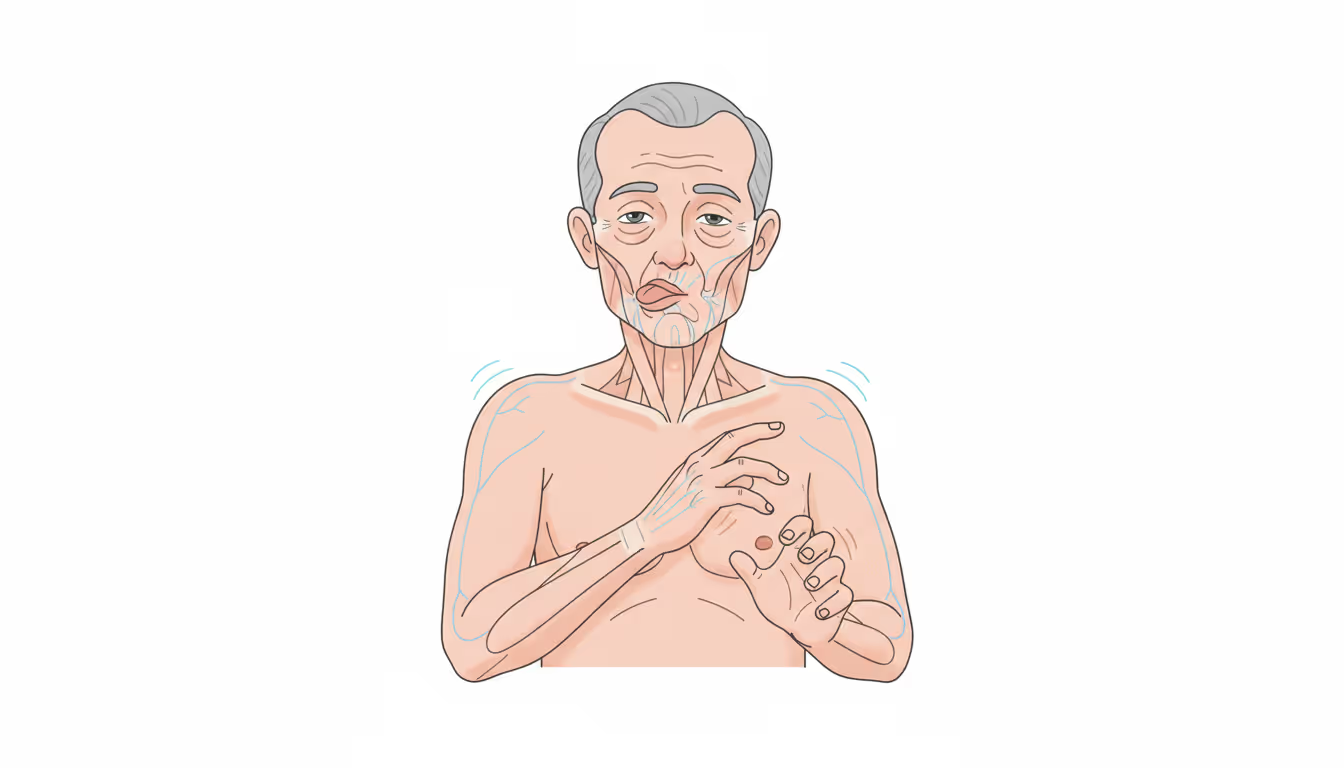
Tardive dyskinesia is a condition marked by involuntary, repetitive movements. It results from prolonged use of certain medications known as neuroleptics, which are prescribed for psychiatric and neurological conditions. Symptoms can include facial grimacing, sticking out the tongue, smacking, puckering, and pursing of the lips, as well as frequent blinking. People may also experience quick movements in their arms, legs, and torso. The likelihood of developing this syndrome increases with higher doses and extended use of these medications. Managing tardive dyskinesia typically involves discontinuing or reducing the use of the problematic drug when possible. Substituting with alternative medications may also be beneficial. Common drugs associated with this condition include chlorpromazine (Thorazine), haloperidol (Haldol), fluphenazine (Prolixin), perphenazine (Trilafon), prochlorperazine (Compro), thioridazine (Mellaril), and trifluoperazine (Stelazine). Others include metoclopramide (Reglan), levodopa (Sinemet), fluoxetine (Prozac), sertraline (Zoloft), trazodone (Desyrel), and phenobarbital.




